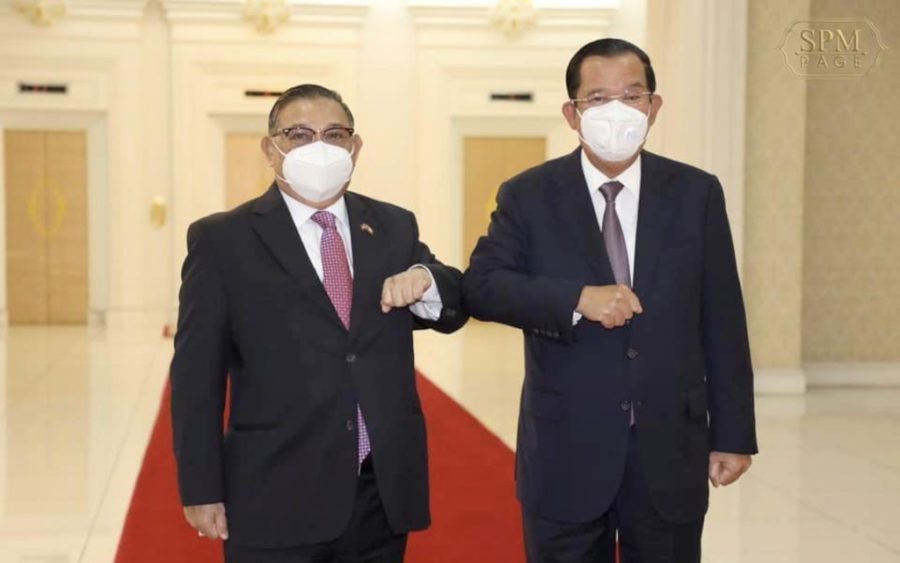Prime Minister Hun Sen doubled down on plans to visit Myanmar in January, insisting that he wanted to return the Asean regional block to 10 members and for that he needed to deal with the junta-led government.
Myanmar has been facing increasing international pressure after the military, also called the Tatmadaw, took power in February by ousting the democratic government of the Aung San Suu Kyi led National League for Democracy.
Asean members decided to exclude Myanmar from a recent Asean summit, appointed an envoy to the country and agreed on a five-point plan with Myanmar junta, which includes cessation of violence, mediation and visits by the envoy. Myanmar is still one of the 10 Asean member states and has not been removed from the group.
Since Cambodia assumed chairmanship of Asean last month, Hun Sen has insisted on normalizing the bloc’s relations with Myanmar, and even hosted the junta’s foreign minister earlier this week and announced a trip to Myanmar in January.
The outreach was extended on Wednesday when RCAF commander-in-chief Vong Pisen held an online meeting with junta leader Min Aung Hlaing, where Pisen invited his Myanmar counterpart to an Asean meeting in March 2022 in Phnom Penh.
The prime minister said on Thursday that cabinet minister Cham Prasidh, of the Industry Ministry, will accompany him on the trip next month and took umbrage with questions being raised over his intentions.
“I have said that anyone can say whatever they want to. Without working with Myanmar, who will we work with then?” he said, speaking at an event on Thursday at the new airport site in Kandal province.
He repeated that he wanted Asean to return to 10 members and the only way to do that was to work with the government running the country. He said a resolution was not likely immediate, but likened the process to the years-long negotiations that ultimately resulted in the signing of the Paris Peace Accords, which, at least on paper, ended Cambodia’s civil strife in 1991.
“One trip cannot solve it immediately but at least we can know what the common problems are. ….That’s the way [to solve this],” he said.
Analysts have raised concerns over Hun Sen’s decision to engage with the military junta, with Thailand-based expert Paul Chambers saying democracies in the region, like Indonesia and the Philippines, would not support it.
Hunter Marston, a political researcher with the Australian National University, previously said Hun Sen’s approach was akin to “cowboy democracy,” but could be more credible if he also spoke to members of the deposed civilian government.
Hun Sen also took offence to comments made by a former Thai diplomat Kasit Piromiya, who recently said that the prime minister’s “reckless comments on recognizing the junta” risked the progress made by Asean, and that Cambodia should remain committed to the roadmap laid out by the bloc.
“It makes no sense that Cambodian PM Hun Sen is discussing plans to visit Myanmar, thereby legitimizing the junta, before progress has been made on the Five-Point Consensus,” said Piromya, who made the comments as a member of the Asean Parliamentarians for Human Rights. “This was the very reason ASEAN excluded junta leader Min Aung Hlaing from its Summit in October.”













